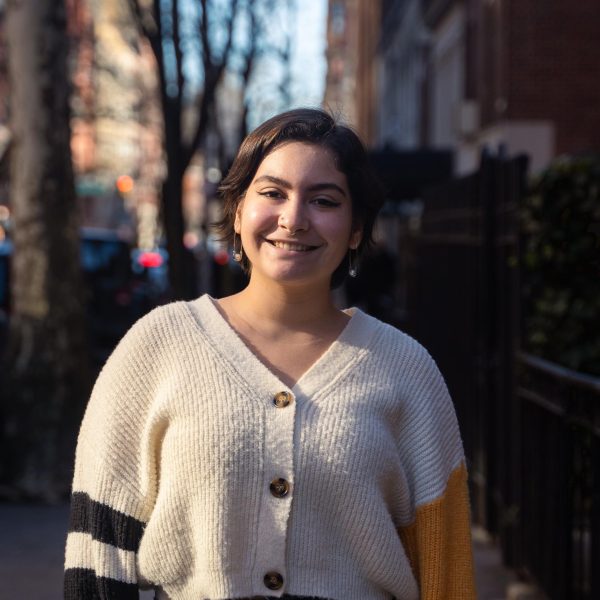How to master studying abroad
Here are our tips to help you make the most out of your semester abroad.
Here’s how to make the most of your study abroad experience. (Illustration by Susan Behrends Valenzuela)
December 14, 2022
We’re back with another guide to help make your study abroad experience as easy and fun as possible.
Now, after preparing to study away, you’re finally stepping onto your home campus for the next four months. Here are some tips and advice on how to master your semester abroad from the seasoned, self-proclaimed study-abroad experts and Parisian city girls, Juliana Guarracino and Lorraine Olaya.
Guarracino: “Why are we qualified to write this guide?” you ask. We studied abroad in Paris together and traveled every weekend for a whole month. I was also in Buenos Aires this semester, and am returning to Paris in the spring.
Olaya: We’ve established I’m jealous that you’re spending a third semester in a row abroad, Juliana. No need to rub it in… please come back, though. I miss you. 🙁
Trips
Guarracino: When NYU offers you an opportunity to go on a trip for free, take it. You don’t have to plan anything, and you can just show up and enjoy a new place. In my opinion, these are some of the best perks of studying abroad that are not to be missed. However, maybe you should only sign up for one or two, instead of putting your name on the waitlist for all of them. Yes, I’m looking at you, Lorraine.
Olaya: NYU-sponsored trips are worth it! The food, tour guides and transportation are all paid for, which means you really don’t have to spend any money unless you want to. If you can go on all of them, do it — but also go on your own trips. Look up smaller towns or niche locations that you wouldn’t normally visit. Also, don’t be afraid to take solo trips, just be very diligent in your planning — i.e. figuring out transportation — so that you don’t get stuck in the middle of nowhere without a way back home.
At the same time, don’t forget about the city that you’re in. Trips are important, but take advantage of living wherever you are. Spend some weekends in the area, and visit more than just the typical tourist spots. Walk aimlessly around the city, visit lesser-known museums or go to local markets and stores. Personally, my goal was to have done so much in Paris that I left feeling a little sick of the city.
Getting Involved
Guarracino: The beauty of being abroad is interacting with locals and creating connections that make you feel like a local too. For example, check city government websites for local events that may interest you. In Buenos Aires, there’s been a bunch of festivals and fairs for art, books and food, and I’ve found them to be some of my favorite experiences here. You can learn about your city while getting out and actually seeing it. Never did I think I’d be at a Basque festival in Buenos Aires eating vegan paella, but I’m glad I was.
I also know many people who took up classes in the local language to nurture their hobbies and meet new people. Be it soccer or crocheting, there are teams or classes if you look for them, and they will certainly be worth it. You can even attend expat events where you can meet other people living or studying abroad. Not only can you immerse yourself in the culture at your site, but you may even make lifelong friends.
Olaya: This is the one tip I regret not taking advantage of when I was abroad. Granted, I didn’t have enough free time, but I wish I had made more local friends, gone to events and clubs or been a part of something outside of campus. The closest I got was dancing salsa at Les Arènes de Jussieu with strangers, going to Latin dance clubs and hanging out with some friends who lived in Paris. Look up local events in areas you’re interested in, sign up for cooking classes or see if you can take some classes at a local university. Hell, download an app to find friends if you need to. It’ll help you improve in the local language — that is, if you’re at an abroad location where you have to learn the language. Local friends will take you to local spots, teach you slang and are a great resource! The only downside is that you’ll have to leave them when you go back home.
Food and Dietary Restrictions
Guarracino: Traveling when you’re vegan means you’re always in for a surprise as to what you will be able to eat. I’ve gone to places that have surprised me with the number of options they have and others that have made me consider eating a whole regular pizza with extra cheese out of sheer hunger. But, ultimately, you just need to know where to look and how to work a menu. Paris and Buenos Aires — known respectively for cheese and steak — seemed like two places that would have no vegan options, but I was pleasantly surprised with how many vegan restaurants I found and also how great they were. Even supermarkets have a good selection of products. Have fun being a foodie and exploring where you can get the best meal in the city with your diet. You never know what you might find.
Olaya: Yes, I’m a picky eater and no, I didn’t try escargot while I was abroad — yes, I know they don’t taste like anything but I refuse to ever try them. But when it comes to food, take advantage of the cuisine. It’s rich coming from me since I refused to eat most French foods, but the ones I did try were good. Do some research on cuisines of your abroad location, but also on the places you travel to! Eating a microwavable Eggo waffle at home is different than eating a Belgian waffle in Belgium. And when else are you going to try a real croissant in France or trdelníks in Prague?
Guarracino: Not going to lie, I still dream of those trdelníks in Prague, because yes, there was a vegan one.
Budgeting
Guarracino: Being abroad can get expensive fast, so use every student discount, every cheap airline and every shortcut. From only buying meal deals to tracking the currency changes for the best exchange rate, there are a bunch of ways to save some cash while you’re abroad, and trust me, you’ll want to. But, I’m also a bad influence sometimes, and I mean, when abroad, why not buy that cute hand-crafted purse or funky tote bag? Why not buy an expensive meal that the country is known for? OK, maybe I’m not the most qualified for this.
Olaya: I was the queen at saving money. Somehow I ended up on the opposite side of the spectrum, where I wish I would’ve spent a little bit more money while abroad. My advice? Give yourself some leeway. You’re abroad! Enjoy as much as you can, indulge in a croissant before class, buy that magnet, pay to get into that club. It’s hard to regret spending money if you’re cheap in the ways that matter. If you’re looking for tips to save, look into what museums you can get into for free. Sign up for any NYU-sponsored outings so that you can go to the L’Atelier des Lumières for free instead of for €13. Go on those NYU-sponsored day trips! Find any local events that are free, buy airplane or train tickets as early as possible and do your research into places that offer discounts. If you think it is worth the $25, getting an International Student Identity Card can offer you lots of discounts.
School
Guarracino: I am very pro-school-doesn’t-matter-when-you’re-abroad, but the experience is called “studying” abroad, so you can’t just forget it entirely. Be on top of your deadlines and get things done ahead of time, but other than that, don’t be too tough on yourself. You won’t remember many of your grades, but the memories that you make exploring a new city will last a lifetime.
Olaya: I’m in the same boat. Drop classes you don’t need. Yes, grades are important, but don’t worry about them too much. Studying abroad is an opportunity that you may not have again, and you’re going to remember being abroad more than what you learned in your classes there.
Guarracino: *drops internship class immediately*
Staying Connected
Olaya: Making sure your phone works when you’re abroad is essential. Figure out whether or not buying a local SIM card is worth it. Check if your phone company charges for international texts or calls. I was able to text without any extra charge, but calls cost money. To call home, I strictly used FaceTime or WhatsApp whenever I had wifi. That being said, my service was really slow. I ended up getting a local SIM card, which was helpful when I needed to make local phone calls.
Staying connected to home is a little difficult, but it’ll work out if you make time for it. I kept a cute WhatsApp group chat with my family and close friends so I could send all the pictures I took, just to feel like I was sharing the experience with them. I barely felt the over 3,000-mile distance between home and Paris because I called my parents or friends whenever I was home.
Guarracino: If you’re anything like me, you will always forget the time difference and accidentally call your parents at 3 a.m. So, schedule your calls — compare schedules, figure out what times work and stick to them. The same goes with friends or partners. Having these regular calls will be grounding, especially during some of the more lonely or homesick times. Olaya: Don’t forget about your friends back home. It’ll be hard to keep up, but maintaining those friendships are so important. Plus, it’ll be grounding at times when you’re missing home. Schedule calls to catch up, send them pictures or simply let them know you’re thinking of them. Even short texts go a long way.
Contact Juliana Guarracino at [email protected] and Lorraine Olaya at [email protected].


























































































































































